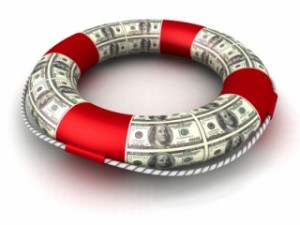We are all trying to plan our lives and it would be great if everything would go according to plan. But most of the times, it doesn’t. But there is a difference between your car breaking and ending up unemployed, with no means to support yourself. Sometimes, money can even make the difference between living and dying.
But even if events that you can’t control or foresee may come, you can be prepared. The best thing you can do is to make an emergency fund for yourself.
There is no trick behind its name; an emergency fund is a fund for emergencies. An amount of money you put aside and you don’t touch unless you’re in trouble. Believe it or not, not a lot of people have an emergency fund. USA is trillions of dollars in debt, and I’m talking both about the government and the people. Each one of us probably owes, on average, $15,000 to his or her credit card company, and 10 times more in mortgage debt and student loans. We’re definitely in trouble if you think about it.
The best thing we can do is gather as much information about emergency funds and pick the type that suits us best to serve as a safety net for when things go bad.
Basically, there are three types of emergency funds, depending on the situation you will use them for. There are certain events when one of these may come in handy, such as: disaster, unemployment, pregnancy, repairing something.
The first type of emergency fund is cash-on-and fun. This is used for events such as natural disasters or anything similar, where you have to get by without access to your home or your usual environment. Keep the money out of the banks; if you put in a bank, it will probably be hard for you to access them in a chaotic situation. Keep it in cash and use it for supplies, accommodation, etc.
The second type of emergency fund that I recommend is the short-term fund. This is something you should use in immediate emergencies, medium-scale. Such a situation could be car repair or fixing something in your household. It’s best to keep this type of funds at a nearby bank. In case you need urgent money for a life event and it takes longer to access the long-term funds, you can appeal to this one and replace the money later.
Speaking of long-term fund, this would be the third type. This fund should be used for long-term changes, such as job loss or fixing everything after disaster strikes. Keep it close to you, but in a way that it doesn’t tempt you to use it for small time things all the time.
Don’t miss out on more tips and tricks concerning emergency funds next time!



No comments yet... Be the first to leave a reply!